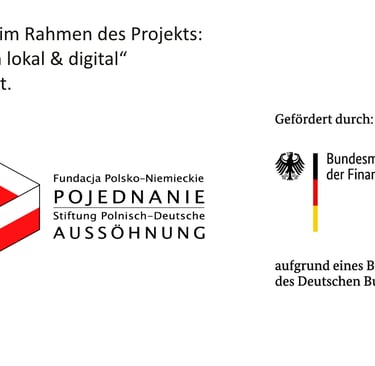I like to imagine...
School history lesson model
The topic of Polish women during the Nazi regime is insufficiently addressed in official historical narratives and in school education in Berlin.
In 2024, our association AmbasadaPolek e.V. invited the Towarzystwo Szkolne Oświata in Berlin e.V. to the project "I like to imagine" and together with teacher Magdalena Lepianka-Nowak we created the concept of two model lessons on the topic of World War II. Instead of discussing the facts and chronology of the war, these lessons focus on a creative approach to storytelling and the participation of students.
The lessons are devoted to the biography of Irena Bobowska, a Polish resistance fighter whose story is largely unknown today. Such lessons are of great importance because they not only expand students' historical knowledge, but also make visible the forgotten perspectives of women in historical narratives. In particular, the stories of women like Irena Bobowska, who were active in the resistance movement and often fade into the background.
We have prepared two lesson plans: "Irena Bobowska – Poetry and the Resistance Movement during World War II", a plan based on poetry and work with words, and "Irena Bobowska – Visualization of Memory", which focuses on visual arts and music. Two selected poems by Irena Bobowska were translated by Elżbieta Kargol as part of the project "The Missing Part of History".
Model lessons took place in April and October 2024 at a school in Spandau, where Magdalena Lepianka-Nowak teaches children learning Polish. The model lesson plans are intended to serve teachers, associations and educators to deepen their knowledge of World War II and the Polish women who participated in it. The lessons can be conducted in German schools and educational institutions.
Such lessons are particularly important because they help raise awareness of the diverse experiences associated with World War II and contribute to restoring important but often forgotten figures in history to the collective memory. At a time when themes such as resistance, courage and solidarity are ever relevant, workshops like this offer students an important starting point for reflecting on these values in the present.
Concept: Magdalena Lepianka-Nowak, Anna Krenz, Ewa Maria Slaska
Texts and graphic works: Anna Krenz
Photos and video: Anna Krenz
PDF with the concept and documentation of the project (39 MB) >>>
IRENA BOBOWSKA
Irena Bobowska, born on September 3, 1920 in Poznań, was a young Polish poet, publicist, illustrator and activist, a very active person, although she had been paralyzed since childhood and could only move around on crutches, in a wheelchair or with splints. Immediately after the outbreak of World War II, she began her underground activities and worked in the editorial office of the underground magazine "Pobudka". She was arrested in June 1940 together with other editorial staff members. She spent two and a half years in various prisons in Poznań, Wronki and Berlin. She was convicted of high treason by the People's Court and beheaded on September 26, 1942 in the Berlin Plötzensee prison.
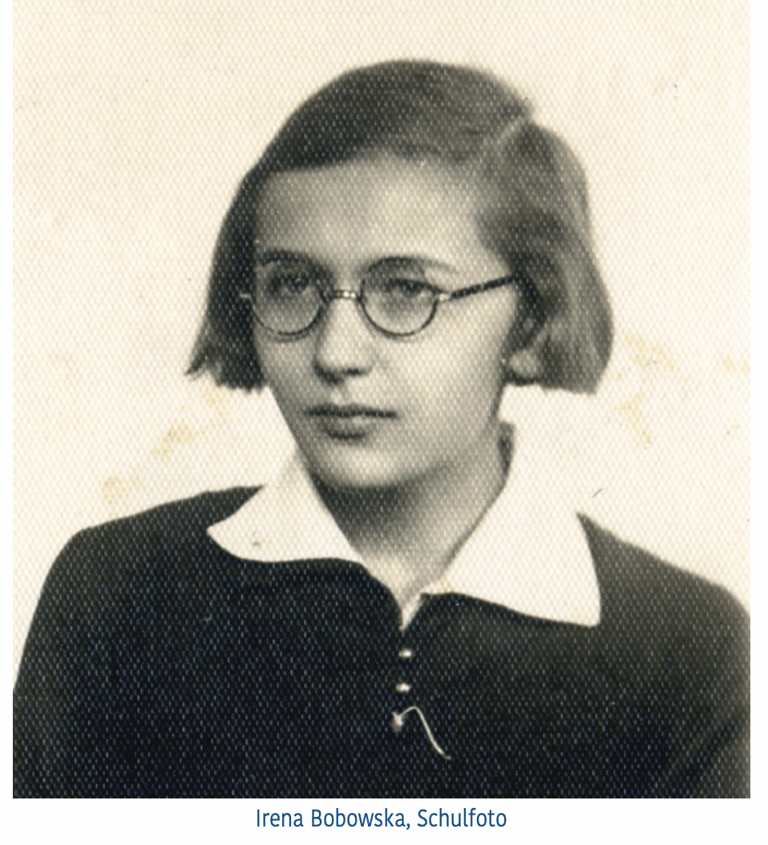

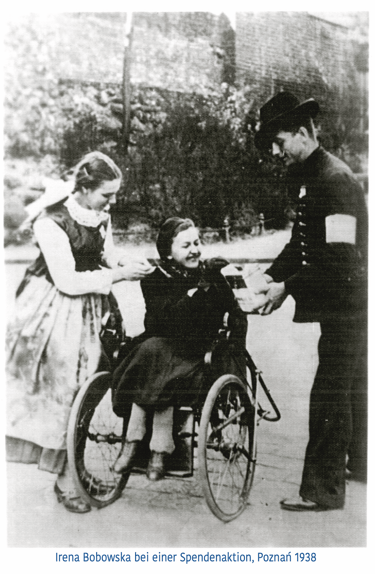

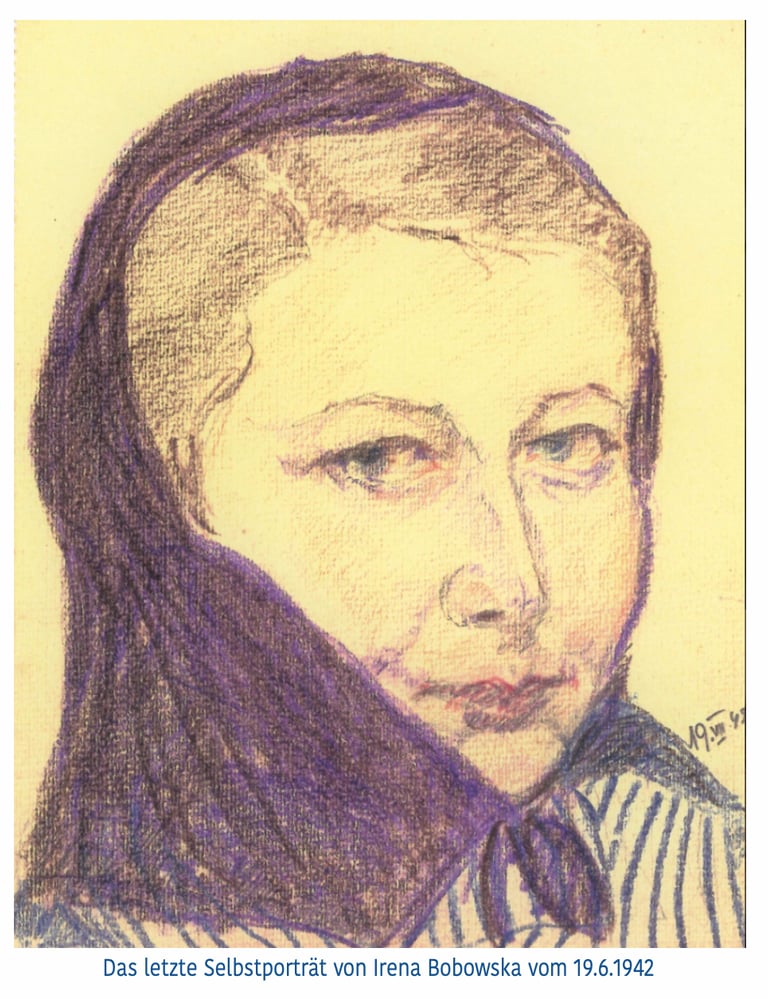

History lessons
Model lessons for school children and young adults
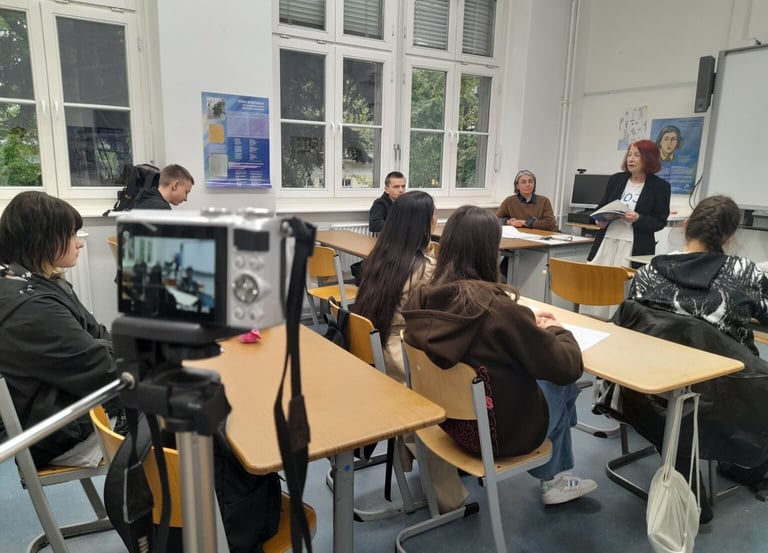

1st lesson:
Poetry and resistance in World War II
(April 24, 2024)
The lesson "Irena Bobowska - Poetry and Resistance in World War II" is an educational offer for students in grades 7 to 10 who are learning Polish. By engaging with poetry and biographical content, learners are given the opportunity to engage with the past in a deeper, emotional way. Translating the poem "I like to imagine..." by Irena Bobowska not only offers students a linguistic challenge, but also an opportunity to engage with the thoughts and feelings of a young woman in war. Reflecting on one's own family history also promotes a better understanding of one's personal connection to historical events. The lesson can also be held in monolingual schools and classes, where students do not translate the poem, but analyze it and answer the questions posed as part of the homework.
"I like to imagine" is the title of a poem written by Irena Bobowska on December 24, 1941.
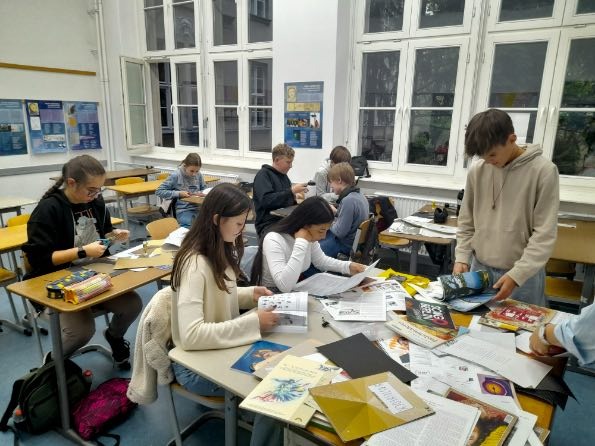

(October 9, 2024)
The second lesson, "Irena Bobowska - Visualization of Memory," offers students a unique opportunity to engage with history in an artistic way. The starting point of this workshop is Irena Bobowska's drawings, as art can be analysed and understood without language barriers. Students are invited to interpret Bobowska's drawings and discuss what emotions and messages they convey. The second lesson focuses on two poems: "I like to imagine..." and "Gentle Fingers," which reflects Bobowska's memory of home and playing the piano. Students are encouraged to create their own visual interpretations of this poem in the form of collages. Creativity is the focus here - regardless of the students' artistic abilities. They can experiment with different materials, colors and shapes to express their own associations with the topic of home, music and memory.
The use of music can be another important component, enhancing the atmosphere of the collages and making the theme of piano music, which is central to the poem, even more tangible. This workshop is a wonderful opportunity for students to develop their creativity while gaining a deeper access to historical and emotional themes.
2nd lesson:
Visualisation of Memory
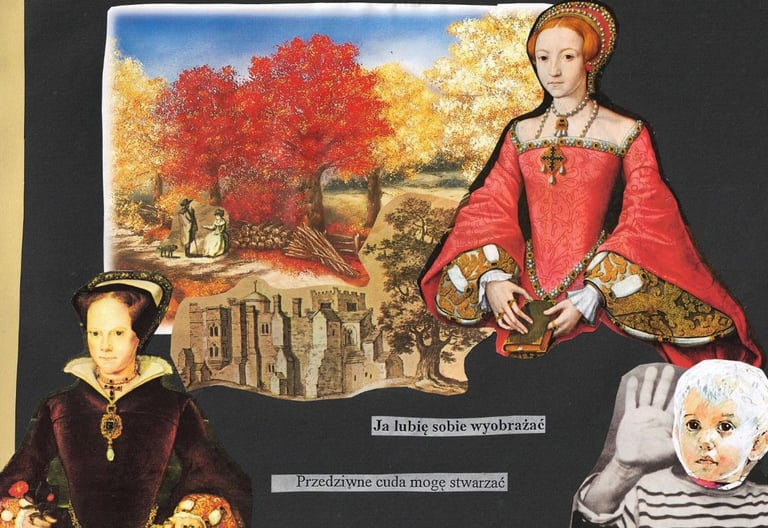

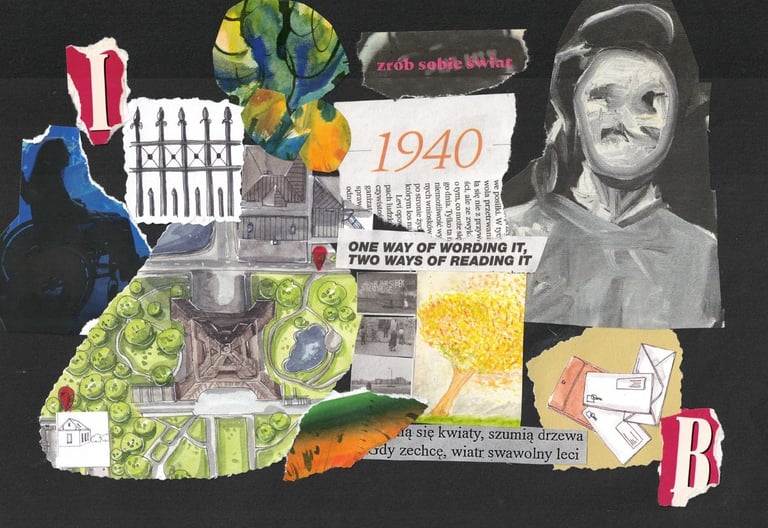

Examples of collages made by students during the second lesson.
The Workshop (Model lessons) were created as part of the Project „Schicksale aus Polen 1939 – 1945. Erinnern lokal & digital“ (“Fates from Poland 1939 – 1945. Remembering locally & digitally”), which is a cooperation project of the German Polish Institute (Deutsches Polen-Institut) and the Polish-German Reconciliation Foundation (Stiftung Polnisch-Deutsche Aussöhnung). Financed by Bildungsagenda NS-Unrecht of the Stiftung Erinnerung, Verantwortung und Zukunft (EVZ Foundation) and the Federal Ministry of Finance (Bundesministerium der Finanzen, BMF).

